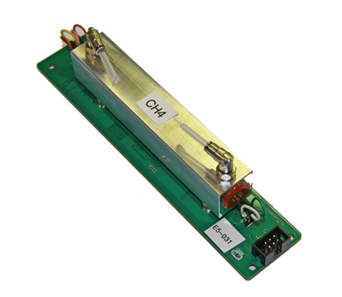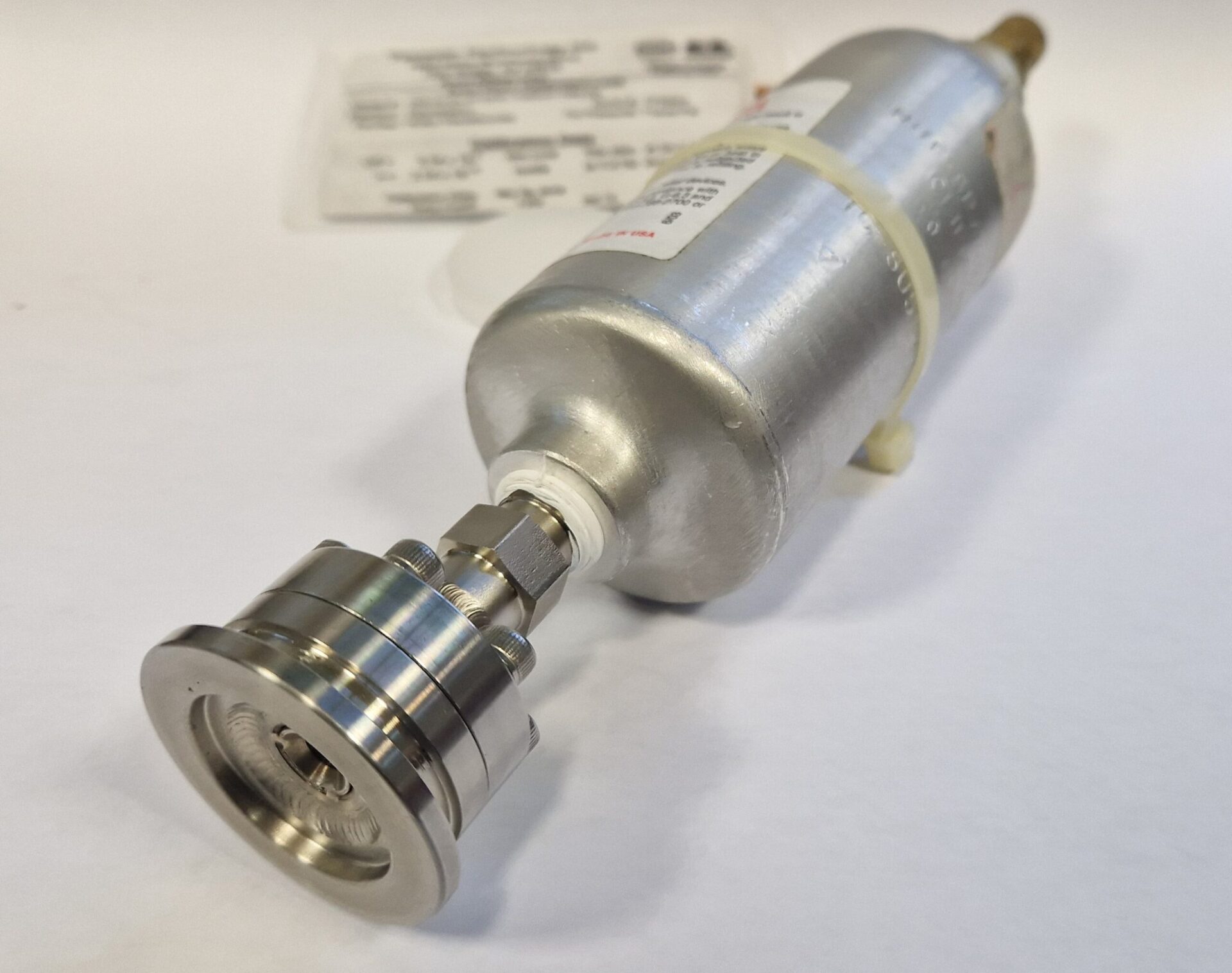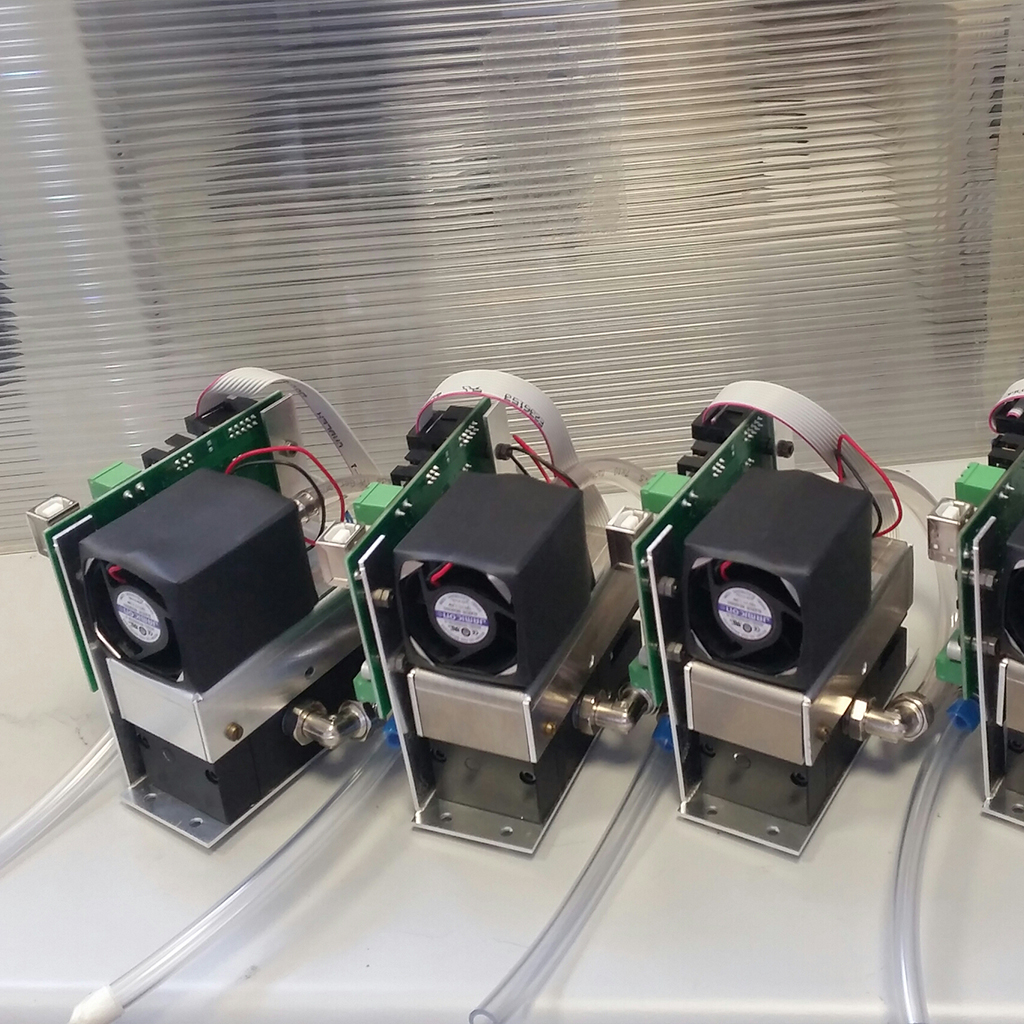Gas Sensors
Qbit sensors for trace gas detection use N.D.I.R. (Non Dispersive Infra Red) technology. This technology is based on the measurement of optical absorption on some I.R. lines specific for each individual gas. Qbit produces four lines of gas sensors: the LS series aimed at leak detection, the E series for industrial or environmental measurements, the C series for gas purity analysis and the LV series for dynamic concentration measurements for biomedical applications. The LS and LV series gas sensors have been designed to achieve optimal sensitivity and response speed and are therefore not equipped with a reference channel. Consequently, they must be used by adopting a calibration procedure (background detection). The E and C series sensors are equipped with a reference channel and can correct measurement disturbances linked to variations in temperature, pressure or relative humidity in the sampled gas, therefore they are suitable for measurements over long time intervals without the need for frequent recalibration.
Qbit sensors for trace gas detection use N.D.I.R. (Non Dispersive Infra Red) technology. This technology is based on the measurement of optical absorption on on some I.R. bands. characteristics of each individual gas….

Particulate Matter (PM) Sensors
Sensors for the measurement of dust concentration (Particulate Matter) are based on measuring the fraction of the power of a collimated laser beam that is scattered by the particulate matter in an interaction cell. They are made up of the optical cell and the electronic measurement processing board. The board is equipped with a micro-controller that takes the measurement, processes it and transmits it via serial (UART, RS-232 or USB) to any control unit such as a PC, tablet or a smartphone. The sensor only requires power and serial connection. The sample of atmospheric air containing the fine particles can be introduced into the cell with a simple fan or via a controlled flow pneumatic circuit for inertial ganulometric analysis with cyclonic filters.
Sensors for the measurement of dust concentration (Particulate Matter) are based on measuring the fraction of the power of a collimated laser beam that is scattered by the particulate matter in an interaction cell.…
Instruments
Qbit produces a series of autonomous air quality measurement instruments both for industrial testing and for environmental and hygiene measurements in the workplace. Among these: LCT-18 – a Leak-Detector/Gas-Analyzer based on infrared absorption which allows selective detection of molecular gases in abundances as low as a few PPMs (Parts Per Million). The instrument is equipped with an infrared optical cell produced by Qbit and finds natural application in the search for gas leaks. LCT-12 – the fixed PM measurement unit (PM2.5 PM10) suitable for both indoor and outdoor use. The control unit can be configured as desired, interfaced with a tablet PC or smartphone via USB, Bluetooth or WiFi. LCT-14 – a modern portable instrument for dust (PM) concentration measurements powered by LiFePO4 batteries and with internet connectivity, which allows real-time analysis of air quality on construction sites or other work environments.
Qbit produces a series of autonomous air quality measurement instruments both for industrial testing and for environmental and hygiene measurements in the workplace.…

Accessories
Qbit provides its customers with the accessories necessary to make the most of the equipment it produces. For example, calibrated leaks of pure gases as well as inertial particulate selectors (“cyclone filters”) are available. A series of standard interface boards are also available to connect the instrumentation to various types of control units.
Qbit provides its customers with the accessories necessary to make the most of the equipment it produces. For example, calibrated leaks of pure gases as well as inertial particulate selectors (“cyclone filters”) are available…



